Thursday, March 15, 2012
Uncle Kenneth Parkinson at War
Headquarters
414 Motor Supply Train
1st Army Corps
American E.F.A.B.O.759
Tonnerre , Yonne, France
February 17th 1919
(KENNETH NUTTALL PARKINSON)
My Dear Brother Harold:
Yours of January 24th, received today, and for which I beg to express my thanks. I
am also in receipt of a letter from Will of the same date, conveying the fact of his discharge and stating his many intentions.
Your mention of the marriage of George D., as well as that of J. Leo, was certainly
in the nature of a surprise. However, I read the account of Leo’s decease in a copy of the TRIBUNE just a few days previous, and in a letter from Miss. La Berge, also learned of George’s departure from the straight and narrow path. However she informed me that the victim was from Detroit rather than from Washington, as suggested by you. But either way will do and leaves the way clear for me to proceed as before, but with certainty. I certainly wish them both the best of luck, as they most certainly deserve it. A man who has the courage to tie himself up for life certainly has all the credit coming to him, as well as sympathy. You might inform Mr. Dorsey that while the path has been hard, yet the results seem to be in my favor, nest ‘pas?
Your mention of Parley as being with the 91st Division, I am afraid is a mistake, at least until the signing of the Armistice he was with the 3rd Division of Regulars, and still was the last time I heard from him. It may be that after his evacuation from the hospital that he was transferred, but that I doubt very much. I think you must have misunderstood the letter. But at any event he has made a wonderful record as did the entire 3rd Div. At one time they were within our corps, but the opportunity was not ripe to see him. That was during the Argonne offensive. Unfortunately the toll of officers was very heavy as well as of the men. In one regiment of the 1st Div. that I visited, the 18th Inf., they came out of the Argonne with only 15 and 20 men to the company. However, most of those men were either gassed or rounded and no doubt, finally returned to their organizations. Records show that the losses incurred by the 3rd Div. was 3000 men killed and wounded, as well as missing, which, next to the 1st Div. was the heaviest endured by any division. That was for the entire period of the war.
(3RD DIVISION REGULARS)
The 91st Div., while a new Div. and saw only action in the Argonne and some on the British front, distinguished itself in the most wonderful manner. The boys of the West all did, and their names will go down in the history of warfare as of the very best. Man for man, they put it all over the men from the East, though all of them were par excellence. 
But the 91st, stands out with a record for a new organization as unsurpassed. They deserve a royal welcome. The 40th Div. to which the 145th Artillery belonged never managed to get into action, with the exception of a few of the men who were used as replacements. That they would have made a record unsurpassed by any Division is openly admitted by all who knew them. They were physical giants, well trained though inexperienced in modern warfare…but men like that learn fast, and I am confident that the Deutsch would have faced one of the toughest problems of their life. Utah may well be proud of her sons. They were there on the spot and were the type to do the job, well officered and well manned.
The Idaho regiment has credit to it.
(IDAHO BOYS SUPPLY TROOPS)
It belonged to the 41st Div. which Div. was used as a replacement. These men were used to replace the men lost in the divisions of regulars, which in itself speaks for them. No better men were in the American Army. These men we have heard but little of, but believe me there is not a state in the Union that deserves more credit. Idaho can not do enough for her valiant troops. The sustained record of any division is due to the quality of its replacements, and it took men like the Idaho men to furnish that want. They did it as no others could, and their names will live in the laurels of military history. Men like Floyd McDonald and Edward Byers are the heroes of the American army. Both of them are entitled to a citation cord, but I am willing to bet that neither of them wear them. The regular soldier who has gone through a sustained hell doesn’t. Floyd is entitled to two wound chevrons, nearly three service chevrons, numerous service bars, and a citation cord. He and Byers have faced cold steel more times than almost any men in the American army.
Then again take Leonard. You people at home who are not familiar with military work and action in this war, other than that of the infantry, have no idea of what those men went through. Did you ever consider that in modern warfare the Engineer works in advance of the Infantry? And further, that the engineers when not busy at anything else, go over the top with the doughboys. Floyd McDonald was an engineer and, perhaps has been over the top 50 to 75 times, taking his life in his hands at each trip, and almost losing it twice. A good many men of the German army went under from his careful aim and bayonet. With Leonard it was different. He was a railroad engineer, and when not running a large engine, was running a narrow gauge, which said lines operate between the second line trenches and the rear. Believe me, there is where it takes courage. Leonard was one of these, luck being with him, however, he came out unscathed.
We have numerous men wearing wound stripes, and when the truth is known we have dispatch riders and truck drivers that fare equally with Paul Revere. One of our lieutenants and some men were cited for bravery for an act that ordinarily passes without interest. They were delivering small arms ammunition to the second line with trucks, when the bridge behind them was destroyed by enemy fire. They delivered the ammunition, helped build the bridge and rebuild it, it being destroyed several times, and after four days managed to get back to the company.
For four months and ten days our entire organization was posted scarcely at any moment less than five miles from the rear. Shell fire and aerial raids, the latter the worst feature of all to endure, were a daily and nightly occurrence. Trucks do not run except at night in hauling ammunition, and then without light. A man who would lite even a match, would be subject to court-martial; if a military police or one of his comrades didn’t shoot him himself. Picture yourself driving a three ton truck loaded with ammunition or hand grenades, on a night as black as pitch, as most French nights are, driving up to the front lines, perhaps under fire, and especially subject to aerial attacks, trying to deliver the load to a second line trench or to the Artillery. Keep that up for months, night and day, without relief and see what will happen. We had sixty men gassed at one trip, three seriously, the other lightly. We had one man killed, several wounded, and one man went crazy under the strain. Ours is only a small organization of 500 men and officers with 120 trucks and nine motorcycles in addition to touring cars.
The driver of the touring car operated for the major was wounded with shrapnel while in advance of the barrage put over on the night of the first of November. One dispatch rider while trying to keep the road for the trucks, or rather to find it ran into a second line trench, just before the St. Mihiel drive started, smashing the front wheel of his machine and otherwise bruising himself. The bearers of dispatches from corps Headquarters to the various divisions in the corps, and the advance P.C were mostly our men. Every night they went to the first or second lines delivering messages. One truck found itself on a road in front of the Infantry awaiting the command to advance in the Argonne.
(SUPPLY TRUCKS)
But still, many amusing things happened as well. For example one whole company of our men were returning from a trip to the front in the Chateau Thierry sector, when stopping along the banks of the Marne they decided to take a bath. (That was our third day at the front when we were all young and foolish). When they were all in the water a “Boche” airplane spotted them and let fly. Believe me, they jumped for the trucks and set out for home. Fortunately the bombs missed. That night we were all bombed at La Ferte, next to Chateau Thierry.
Just above Chateau Thierry the first day out, one of the boys picked up a live hand grenade and, after playing with it a while, tried his luck at throwing it, thinking it harmless. He learned the first real lesson of his sweet young life.
One of our riders from Train Headquarters, while in the Argonne, started out to deliver a truck order to one of the companies. It was after mid-night and the sky was black. After stopping several times and putting his ear to the ground to avoid being run into, he managed to get there, but on the way back he ran into the rear end of a cow, very nearly ruining the machine and the cow. Another time he was on the road when a delayed mine exploded, knocking him off the truck to the side of the road but leaving him uninjured. At a later date he turned up missing. We found the machine along the side of the road, and after two months found that he was in the hospital with a broken leg. He is still there, having been hurt Nov. 1st. He must have either been run into or else got in the way of a stray shell, we have never learned just which.
Of the nine motorcycle riders, only one or two have come out without being crippled thru accidents caused by incidents while in the line of duty. The above represent just a few of the many thousands of incidents that occurred in every similar organization. Every day, every hour was marked by something new.
Our outfit has received honors too. We are the supply train, and let me add, ammunition train for the 1st Corps, the oldest corps in the service. Three of our companies are with the Army of occupation, another with the First Army Headquarters, and the balance together with Headquarters is here with the corps. Several of our trucks were the first machines and their drivers the first men to enter occupied territory. These and numerous other honors have been received. Our train has been written up by New York papers.. Atlanta and Detroit papers as well as several others. So take it all in all, we feel that we have done our share, and are willing to let the other fellow take a turn. Still, if we had to do it over again every man and officer would start without a moments hesitation.
(AMERICAN MONUMENT AT CHATEAU THIERRY)
And now other subjects. You mentioned the enclosure of a card of some description, but neglected to put it in the letter. I am now anxious to receive it and know the donor.
Next week I leave for England for my first leave since entering the service and I expect a real time. Also have learned that my application for a course in a British University was acted upon favorable by Corps Headquarters and has now gone up to General Headquarters for approval. This makes it appear that it stands a chance for going through. About 75 of the applicants were rejected due either to prior records or to lack of sufficient college training, The Chaplain, the Doctor and myself managed to get by. Must close with best wishes. Kenneth
Subscribe to:
Post Comments (Atom)






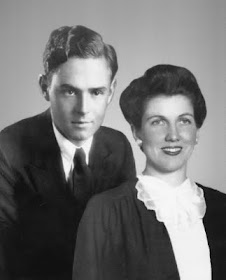
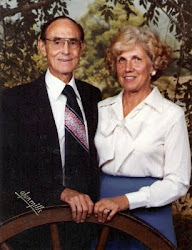
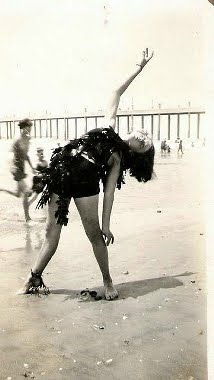
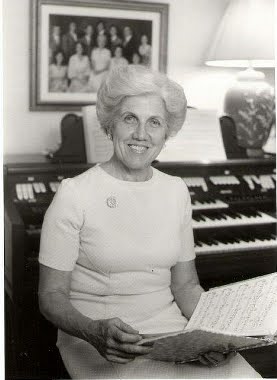
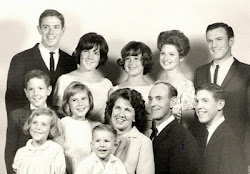
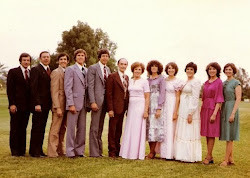
1 comment:
I was delighted to find this post today. As the man in the black bowtie is the same man who is in a picture with my grandmother, Ruth. Yes, Kenneth N. Parkinson is my grandfather, and the father of Kenneth Wells Parkinson, my father. I hope you are well and thank you for this glimpse into his life through letters.
Regards,
Philip R. Parkinson
prparkinson@gmail.com
Post a Comment